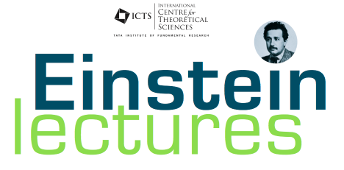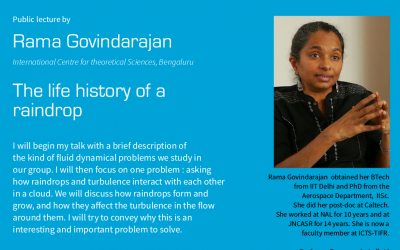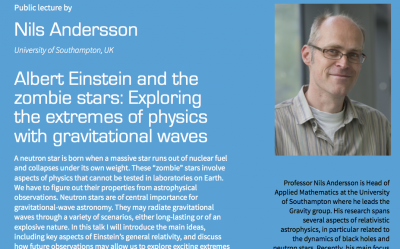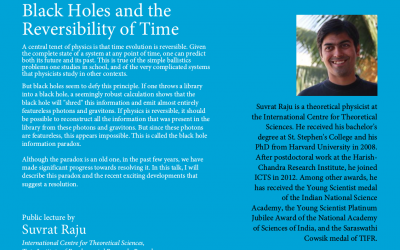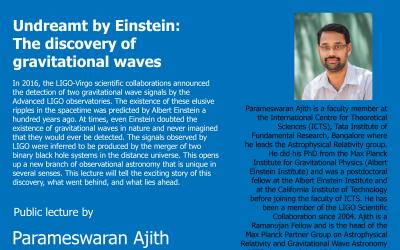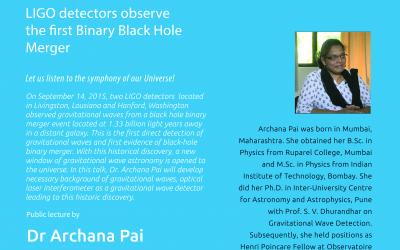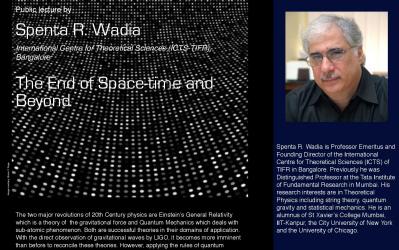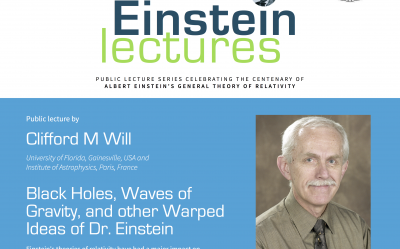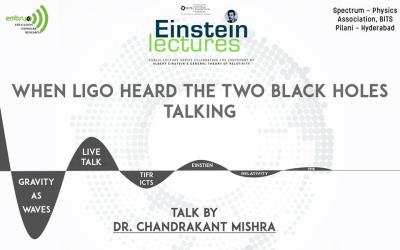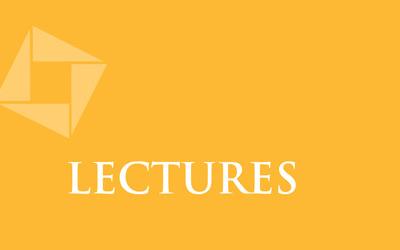Rama Govindarajan (International Centre for Theoretical Sciences, Bengaluru)
29 July 2017, 11:00 to 13:00
School of Sciences, Jain University, Bengaluru
I will begin my talk with a brief description of the kind of fluid dynamical problems we study in our group. I will then focus on one problem : asking how raindrops and turbulence interact with each other in a cloud. We will discuss how raindrops form and grow, and how they affect the turbulence in...more


